First steps
The institutional commitment of the University of Barcelona to the environment was first made concrete with the constitution of the Environmental Policy Committee, by agreement of the Board of Governors on December 15, 1995. This committee launched initiatives such as the introduction of environmental criteria in the administrative clauses of reprographic and catering service concessions, and a study to implement a waste management plan at the UB.
On April 15, 1999, the Board of Governors agreed to change the name of the committee, which was renamed the Environmental Committee of the UB. Participants included professors with expertise in the field, management managers from the different UB campuses, OSSMA technicians, administrative and service staff, and students. Among the initiatives promoted by the Environmental Commission was the approval of the UB environmental policy statement (approved by the Board of Governors on July 16, 2000), a diagnosis of environmental teaching and research at the UBand a study prior to the implementation of an ISO 14001 or EMAS certificate at the Mundet Campus.
In coordination with the initiatives undertaken by the Environmental Committee, the Environmental Area of the Office of Safety, Health and the Environment (OSSMA), inaugurated on June 5, 1998, is carrying out actions to support the deployment of selective collection, the proper management of waste generated by the UB, the implementation of environmental plans at UB centers, and the establishment of environmental sustainability criteria for subcontracted companies, and the implementation of environmental plans in the centers, as well as establishing environmental sustainability criteria for subcontracted companies, carrying out environmental training courses, and launching environmental awareness campaigns among the university community. Translated with www.DeepL.com/Translator (free version)
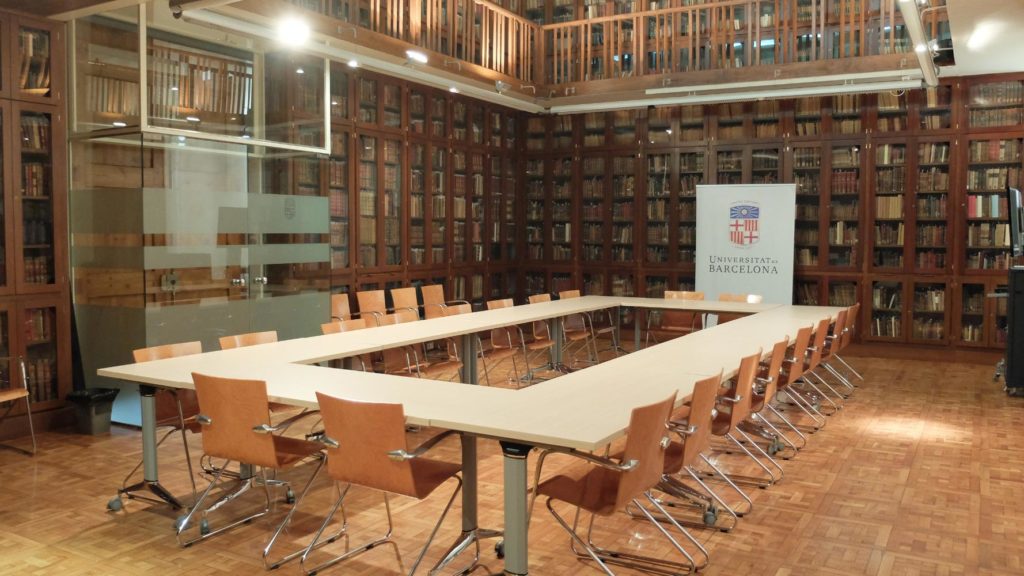
The UB Bylaws and the Sustainability Committee
In 2003 the University reaffirmed its commitment by integrating the environmental fact into the text of the Statute, approved by the University Senate on May 21, 2003 (Decree 246/2003, October 8) (DOGC number 3993, October 22, 2003), in the following articles:
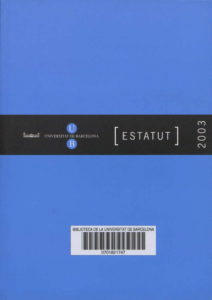
- Article 4.1 […] are proclaimed and guaranteed: […] e) the orientation of teaching and research towards the culture of peace, social and human progress based on human rights and respect for the environment and sustainable development.
- Article 14 They are the competences of the faculties and university schools: […] u) ensure compliance with safety, health and environmental regulations in the center in a coordinated manner with the departments in order to guarantee safe conditions for the exercise of the activity that is its own.
- Article 28 They are the competences of the departments: […] u) ensure compliance with safety, health and environmental regulations in the department’s scope of action in a coordinated manner with the person in charge of the center, in order to guarantee safe conditions for the exercise of the activity that it is his own.
- Article 41 The following are functions of the university research institutes: […] f) ensure compliance with safety, health and environmental regulations in the institute’s scope of action in a coordinated manner with the person in charge of the center, in order to guarantee safe conditions for the exercise of the activity that is its own.
- Article 58.2 The University Senate will create a delegated committee that will ensure that the University respects the criteria of ecological sustainability and environmental protection in all its activities. To this effect, the aforementioned commission will establish a program of action of the University in the ecological area and will present an annual report to the University Senate on the completion of this program. It shall be composed of a representation of the different sectors of the university community in equal proportion.
- Article 84.3 The University of Barcelona promotes in its study plans the offer of subjects related to the environment, sustainable development, the culture of peace and social and human progress based on human rights.
In accordance with article 58.2 of the Bylaws, the Sustainability Committee delegated by the Senate was created. Its functions are to elaborate the sustainability plan and to carry out the follow-up. It is formed by four representatives from each of the university groups (teaching and research staff, administrative and service staff, and students), by a representative of the OSSMA who acts as secretary of the Committee and by two professors as expert advisors, and is chaired by the person from the governing team who has been assigned the competencies in the area of sustainability.
The Sustainability Plan of the University of Barcelona
The UB, as an institution responsible for providing the public service of higher education through teaching, study and research, also has the responsibility to carry out its work in a sustainable manner, promoting and actively participating in social and economic development without contributing to environmental deterioration or the depletion of natural resources.
In order to fulfill this responsibility, in 2011 the Sustainability Committee designed the Sustainability Plan of the University of Barcelona, with the advice of the Environmental Area of the OSSMA. During the first semester of 2012, a period of public participation and presentation of the Plan to various faculties was opened, which allowed the incorporation of proposals and suggestions raised by the university community. You can read more about how the design of the plan was developed .
Once the amendments received were integrated, the Sustainability Committee approved the final document of the Sustainability Plan , approved by the University Senate in the session of July 12, 2012.
The Sustainability Plan was in force between 2012 and 2018. The follow-up reports can be consulted on the OSSMA website.
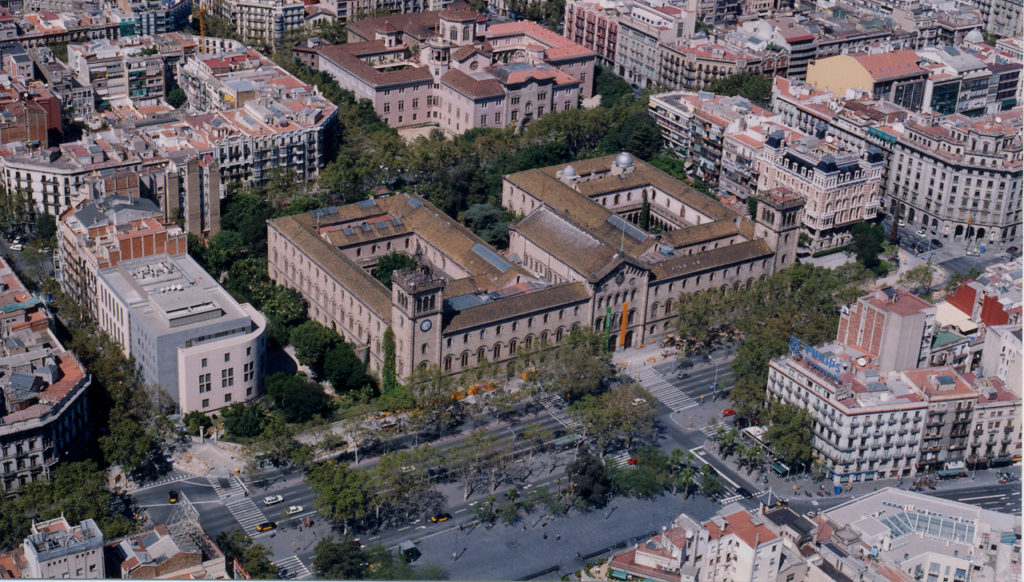
UB Sustainability Policy
The Sustainability Committee realized that, once the objectives set out in the first environmental declaration of 2000 had been achieved, and taking into account the conceptual, technological and legislative developments in this area, a new declaration was needed so that the UB could continue to make progress on the road to sustainability.
The Sustainability Commission will approve the sustainability policy of the University of Barcelona on June 30, 2016, and the Governing Council accepted it on July 13 of the same year.
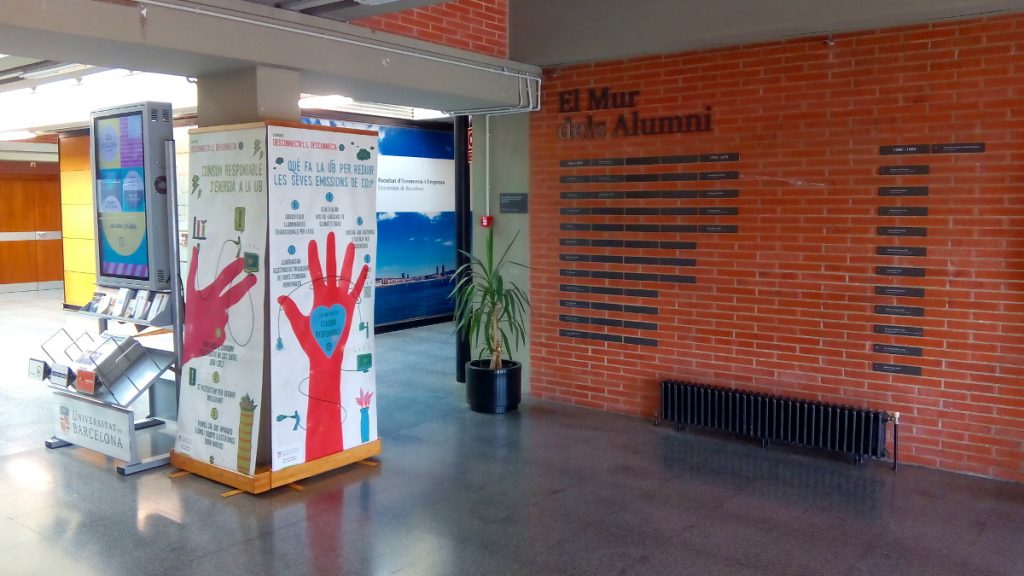
The UB’s 2030 Agenda
Once the period of validity of the Sustainability Plan had ended, the Vice-Rectorate for Equality and Social Action promoted the process of drawing up the University of Barcelona’s Agenda 2030, a strategic action plan to strengthen the UB’s contribution to the fulfillment of the United Nations’ Agenda 2030.
In order to design the UB’s Agenda 2030, on February 18, 2018, the conference “The University of Barcelona and the Sustainable Development Goals (SDGs): building the UB’s Agenda 2030” was organized, open to contributions from the entire university community. Subsequently, an ad hoc working group was set up with the participation of teachers and representatives of administrative units (including the OSSMA) to prepare an initial proposal for a framework document.
In addition, the UB Governing Council, in March 2019, at the proposal of the Vice-Rectorate for Equality and Social Action, created the Sustainable Development Committee of the University of Barcelona, which on 17 January 2020 approved the UB Agenda 2030 Framework Document (goals), approved by the Governing Council on June 26, 2020.
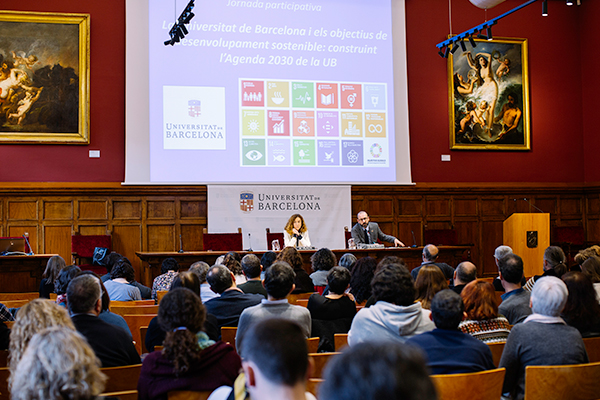
Networking
The UB has actively participated in various action networks for sustainability (sectoral or territorial), such as the Copernicus Alliance of European Universities for Sustainability, the Sustainability Commission of the European Commission, the CRUE, the ACUP’s sustainability working group (Catalan Association of Public Universities), the Sustainable Development Solutions Network (SDSN), the European Network for Sustainable Mobility at University (U-MOB LIFE), the Barcelona+Sustainable network, the Catalan Environmental Education Strategy , the Catalan Zero Waste Strategy , or the mobility table of the Diagonal Campus universities .
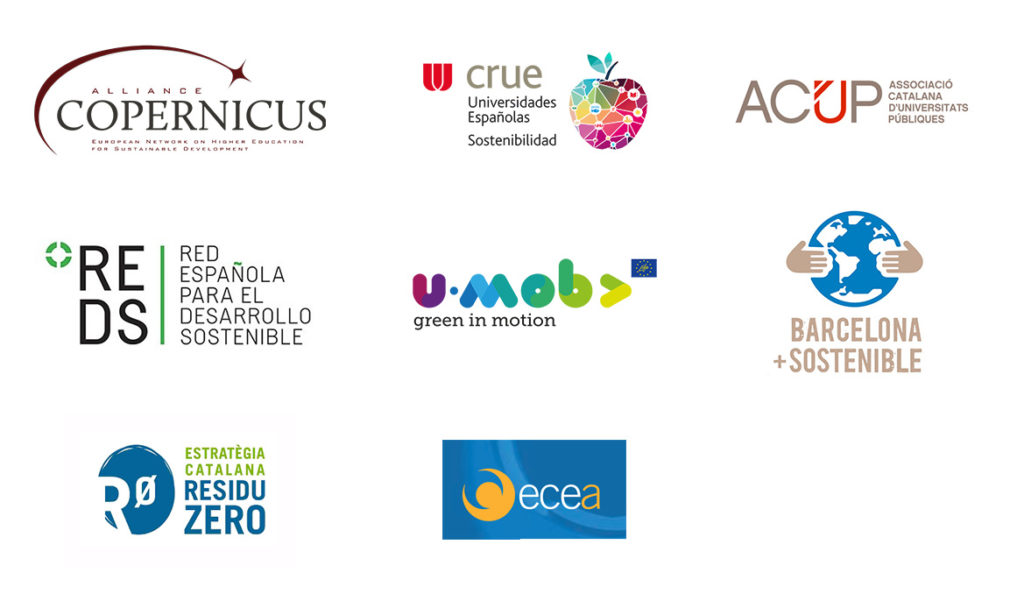
The people appointed by the government team with responsibilities in the area of sustainability participate in these networks, when the meetings require institutional representation, and the head of the OSSMA or the technicians of the Environmental Area, when they are of a technical nature.
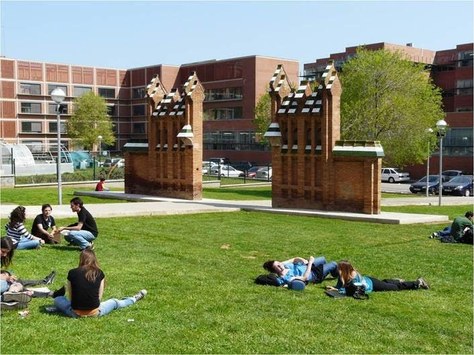
Awards and recognitions
- Award 10 good ideas to change the world (2022)
- Voluntary Aco2rds membership (2018)
- Rezero Recognition (2016)
- Acció21 Award (2008)
- Mobilitat Bicicampus Award (2008)